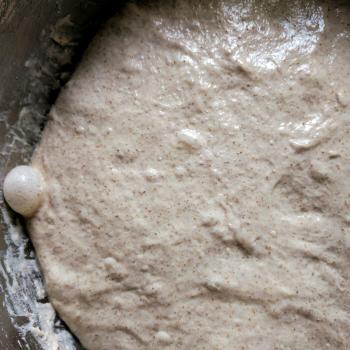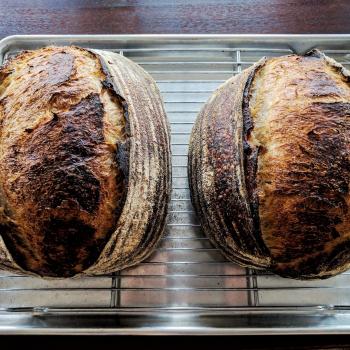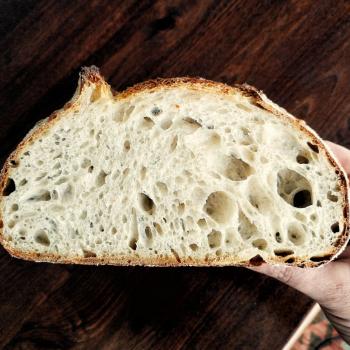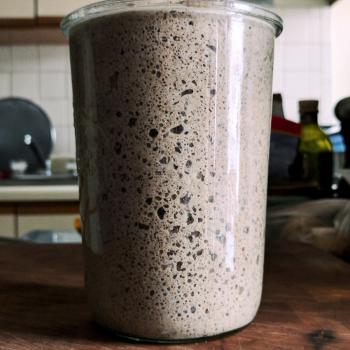
Mélange
38%
49%
13%
Liquide
Farine
Autres
Vivianne
Depuis 2016
Several attempts throughout the last 10 years, but a concerted effort in March 2016 provided excellent results. I now bake almost every weekend.
Caractéristiques
50/50 mix of rye and AP flours in the starter have a very subtle sour smell, but also quite fruity. It can be a bit heady. Adding 100% rye flour to the starter to build the levain only further adds to the complex fermented flavors. The end result is a moist loaf with (what I refer to as) a "bass" sourness. Not a bright sour flavor, but something deeper and in the background. Boldly baked.
Goût et saveur
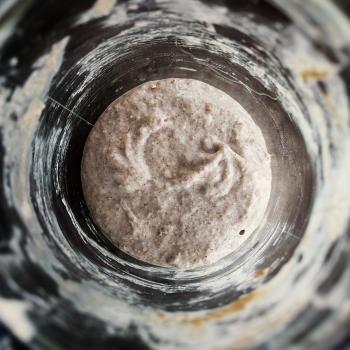

Recette
Ingrédients de base
- 100% Flour
- 79% Water
- 25.5% Levain
- 2.2% Salt
Ingrédients pour nourrir le levain
1
Remove all but about 20% of starter. Refresh with 50/50/ mix of rye and AP flour and an equal amount of water. Stir to combine and cover.
Sometimes, starter will live in refrigerator for most of the week (only bake on weekends at this point), but will be refreshed several times before needed.
Méthode de travail
1
Starter is 50/50 mix of rye/AP flour. kept at 100% hydration.
100% Flour
79% Water
25.5% Levain
2.2% Salt
2
Starter added to 100% rye flour to make levain.
While levain becomes active, the flour and water are mixed to begin autolyse. When ready, levain and salt are incorporated into mixture.
3
Stretch and fold once every 30 to 60 minutes until the strength of dough seems sufficient. Dough then bench rests until ready for shaping.
4
Dough is shaped into a small batard and placed into floured banneton. Banneton is covered in a large plastic bag and moved to the refrigerator to slowly rise (8-12 hours).
5
Oven setup: Oven preheated to 500°F for 1 hour (oven contains baking stone on lower rack, and baking steel on upper rack.) Large stainless steel bowl is preheated in oven at the same time.
6
Baking: When oven is ready, dough is flipped onto parchment, slashed in desired manner, spritzed with a little water, and placed onto baking stone. Stainless steel bowl is inverted over loaf. Temperature reduced to 475°F and baked for 25 minutes.
7
After 25 minutes, the steel bowl is removed from oven. Depending on current state of browning and desired end result, oven temperature may be reduced to 450°F at this point and baking continues for 10-15 minutes.
8
For a more tender crust, loaf is removed when browning has reached desired state. For a crunchier and drier crust, oven is turned off and the door is left slightly ajar for 10 minutes before removing loaf.
9
Now the hard part: cool completely before cutting.
Result
Vivianne primarily makes the bread described here. Occasionally, I use her for pizza (omitting rye for AP or 00 flour).
